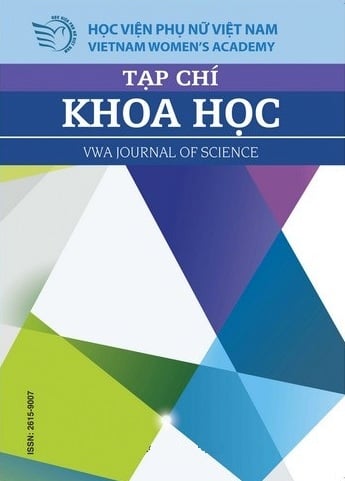[1] Broyles, L. M., Binswanger, I. A., Jenkins, J. A., Finnell, D. S., Faseru, B., Cavaiola. A., Pugatch, M., & Gordon, A. J. (2014). Confronting inadvertent stigma and pejorative language in addiction scholarship: A recognition and response. Substance Abuse, 35 (3), 217-221.
[2] CSAT (1999). Enhancing motivation for change in substance abuse treatment. Treatment Improvement Protocol (TIP) Series 35. DHHS Publication No. (SMA) 99-3354. Rockville, MD: Substance Abuse and Mental Health Services Administration. December 17, 2013, from www.unicef.org/eapro/bao_cao_tom_tat_ tienganh.pdf
[3] Daley, D. C. & Feit, M. D. (2013) The Many Roles of Social Workers in the Prevention and Treatment of Alcohol and Drug Addiction: A Major Health and Social Problem Affecting Individuals, Families, and Society. Social Work in Public Health, 28(3-4), 159-164.
[4] Decision 32 by the Prime Minister of Vietnam (2010). Approval of the Project on Social Work Development also known as Đề Án Công tácXã hội ở Việt Nam 2010 – 2020. Retrieved from http://moj.gov.vn/vbpq/ Lists/Vn%20bn%20php%20lut/View_Detail.aspx?ItemID=25159
[5] Hines, A. M., Cohen, E., Tran, T., Lee, P., & Le, P. (2010). The Development of Social Work in Vietnam: The Role of International Collaboration. Social Work Education, 29(8), 910-922.
[6] Hugman, R., Nguyen, T. T. L., and Nguyen, T. H. (2007). Developing social work in Vietnam. International Social Work, 50(2), 197- 211.
[7] International Labor Rights Forum. (2014). Vietnam’s forced labor centers. Retrieved October 26, 2014, from http://www.laborrights.org/sites/default/files/publications/VN_Forced_La...
[8] Martin, G., Stephens, D., Burrows, D., Vu, Y.V., Nguyen, L.T., Tran, S.T., and Tran, D.T. (2009). Does drug rehabilitation in closed settings work in Vietnam. Retrieved May 25, 2013, from http://www.unodc.org/ unodc/search.html?q=Does+drug+rehabilitation+in+closed+settings+work+in+Vietnam
[9] Martino, S., Carroll, K. M., Nich, C., & Rounsaville, B. J. (2006). A randomized controlled pilot study of motivational interviewing for patients with psychotic and drug use disorders. Addiction, 101(10), 1479-1492.
[10] Miller, W. R., & Rollnick, S. (2002). Motivational interviewing: Preparing people for change. New York: Guilford Press.
[11] Miller, W. R., Yahne, C. E., & Tonigan, J. S. (2003). Motivational interviewing in drug abuse services: A randomized trial. Journal of Consulting and Clinical Psychology, 71(4), 754-763.
[12] Ministry of Labor, Invalids, and Social Affairs (MOLISA) (2013). Training professional social workers in Vietnam: Opportunities and challenges. Retrieved May 31, 2013, from http://congtacxahoi.molisa.gov. vn/index.php?option=com_content&view=article&id=245%3Ahot-ng-ao-to-cong-tac-xa-hi-vit-nam-hinnay-c-hi-va-thach-thc&Itemid=345
[13] Ministry of Labor, Invalids, and Social Affairs (MOLISA) (2018). Press conference on drug treatment in the new period. Retrieved February 5, 2020, from http://pctnxh.molisa.gov.vn/default.aspx?page=news&do=detail&id=1931
[14] Moyers, T.B., Miller, W.R., Hendrickson, S.M.L. (2005). How does motivational interviewing work? Therapist interpersonal skill predicts client involvement within motivational interviewing sessions. Journal of Consulting and Clinical Psychology, 73(4), 590-598.
[15] National Association of Social Workers. (2017). NASW Code of Ethics (Guide to the Everyday Professional Conduct of Social Workers). Washington, DC: NASW.
[16] National Institute on Drug Abuse. (2009). Principles of Drug Addiction Treatment. Bethesda, MD: NIDA. (NIH Publication No. 09-4180). Retrieved June 1, 2013, from http://www.drugabuse.gov/publications/ principles-drug-addiction-treatment
[17] Nguyen, T. T. L., Hugman, R., & Briscoe, C. (2010). Moving Towards an ‘Indigenous’ Social Work Education in Vietnam. Social Work Education, 29(8), 843-854.
[18] Nguyen, T.B. (2013). Social work and anti-drug addiction in Vietnam. Retrieved June 4, 2013, from http://www. gopfp.gov.vn/so-5-134;jsessionid=827C5F451F45CE9F9E7B1C0F010907D4?p_p_id=62_INSTANCE_ Z5vv&p_p_lifecycle=0&p_p_state=normal&p_p_mode=view&p_p_col_id=column-3&p_p_col_ count=1&_62_INSTANCE_Z5vv_struts_action=%2Fjournal_articles%2Fview&_62_INSTANCE_ Z5vv_groupId=18&_62_INSTANCE_Z5vv_articleId=204142&_62_INSTANCE_Z5vv_version=1.0
[19] Nguyen, T.T. M., Nguyen, L.T., Pham, M.D., Vu, H.H, and Mulvey, K.P. (2012). Methadone maintenance therapy in Vietnam: An overview and scaling-up plan. Advances in Preventive Medicine, 1-5.
[20] Nguyen, V. T., &Scannapieco, M. (2008). Drug abuse in Vietnam: a critical review of the literature and implications for future research. Addiction, 103(4), 535-543.
[21] Payne, W. J. (2010). Motivational interviewing. Forum on Public Policy: A Journal of the Oxford Round Table.
[22] Smedslund et al. (2011). Motivational interviewing for substance abuse. Cochrane Database System Review, 11(5), 1-30
[23] Sobell, L. C., &Sobell, M. B. (2008). Motivational Interviewing strategies and techniques: Rationales and examples. Retrieved February 5, 2020 fromhttp://research2vrpractice.org/wp-content/uploads/2015/04/mi_ rationale_techniques.pdf
[24] Tevyaw, T., & Monti, P. M. (2004). Motivational enhancement and other brief interventions for adolescent substance abuse: foundations, applications and evaluations. Society for the Study of Addiction, 99(2), 63-75.
[25] The United Nations Office on Drugs and Crime (UNODC) (2010). Vietnam drug use statistics. Retrieved May 26, 2013 from http://www.unodc.org/unodc/search.html?q=statistics+of+drug+users+in+vie...
[26] Wahab, S. (2005). Motivational interviewing and social work practice. Journal of Social Work, 5(1), 45-60.
[27] World Bank. (2011). Evaluation of epidemiological impact of harm reduction programs on HIV in Vietnam. Retrieved May 25, 2013, from https://openknowledge.worldbank.org/handle/10986/12848
[28] World Health Organization (2010). ATLAS of substance use disorders resources for the prevention and treatment of substance use disorders (SUDs) Country Profile: Vietnam. Retrieved May 25, 2013, fromwww.who.int/ substance_abuse/publications/atlas_report/profiles/viet_nam.pdf
